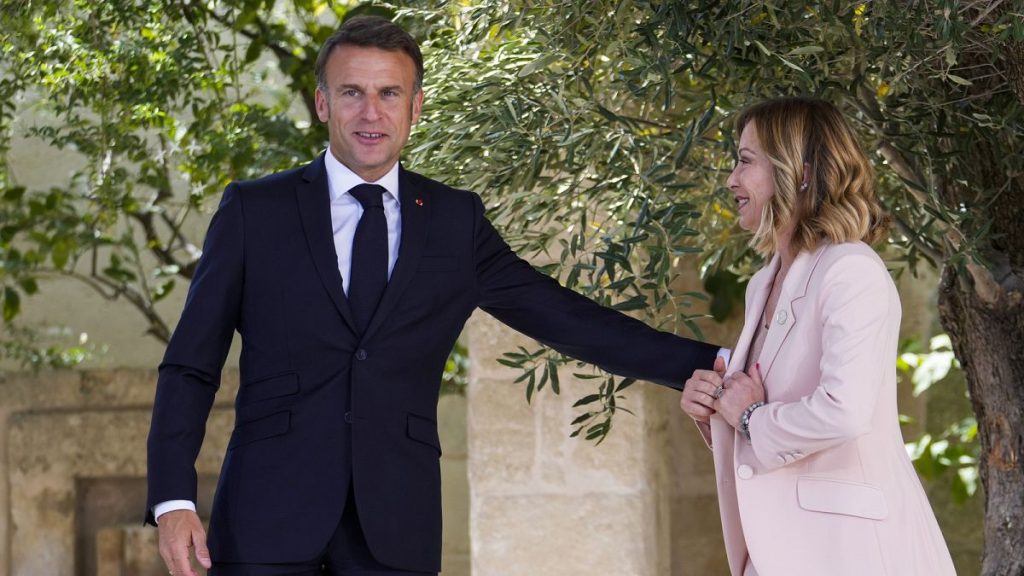The European political landscape is shifting following recent elections, with French President Emmanuel Macron’s Renew Europe group seeking to challenge Italian Prime Minister Giorgia Meloni’s ECR for the influential third-place position in the European Parliament. Meloni’s ECR welcomed six new members from the nationalist AUR, boosting its seat count to 83 and pulling ahead of Renew Europe. However, Renew Europe quickly responded by welcoming one new lawmaker from the Belgian party Les Engagés, signaling their intention to close the gap. According to Renew Europe president Valérie Hayer, the competition for third place has just begun, with both groups vying for influence based on values, ideas, and policy.
Renew Europe hopes to surpass ECR in seat numbers by inviting the five lawmakers elected to represent the European federalist Volt party. However, the decision will be put to a vote among Volt members, and there are indications that they may choose to align with the Greens group instead. This competition comes as Macron and his Renaissance party gear up for challenging legislative elections in France, following a strong showing by the far-right National Rally in the European elections. Macron’s efforts are seen as crucial in fending off a far-right surge in an EU country that has traditionally kept populist forces out of government.
Tensions have also emerged between Meloni and Macron, stemming from disagreements during a recent G7 summit in Italy over language regarding the right to abortion. Meloni’s hard-right FdI party performed well in the European elections, consolidating her power domestically. ECR leaders expressed frustration over being excluded from negotiations for top EU jobs, with Renew Europe insisting that only pro-European groups like themselves, the EPP, and the Socialists would have a say in determining these positions. Hungarian Prime Minister Orbán expressed dissatisfaction with the outcome of the top job talks, criticizing the prevailing alliance’s stance on migration and the Russia-Ukraine conflict.
Orbán’s possible alliance with Meloni’s ECR group seemed to fizzle out following the entry of Romania’s AUR party into the group, as Fidesz made it clear they would not align with a party known for its anti-Hungarian sentiments. Renew Europe faces a difficult choice regarding the potential expulsion of the Dutch VVD party due to its coalition with Geert Wilders’ far-right PVV party in the Netherlands. Despite the prospect of increased seat numbers with new members joining, Renew Europe’s president, Hayer, faces the delicate task of managing internal party dynamics amid a challenging political landscape.
The competition for third place in the European Parliament reflects broader tensions and shifts within European politics, with various parties and factions jockeying for influence and power. As centrist forces like Renew Europe seek to assert their vision and values in the face of rising far-right and nationalist movements, the outcome of these battles could have significant implications for the future direction of the European Union and its member states.


